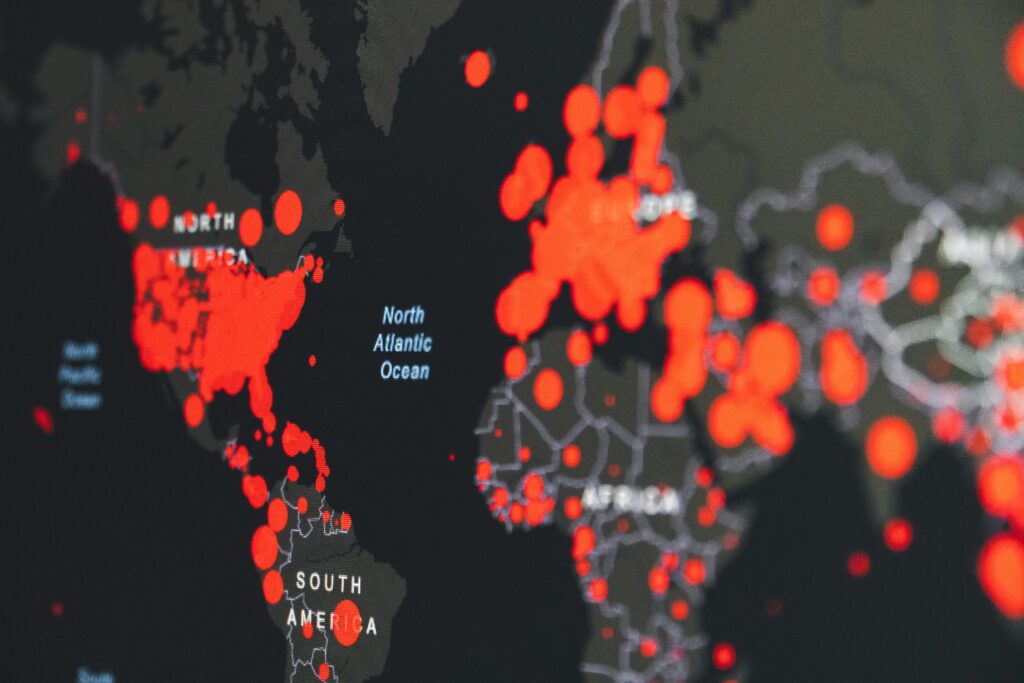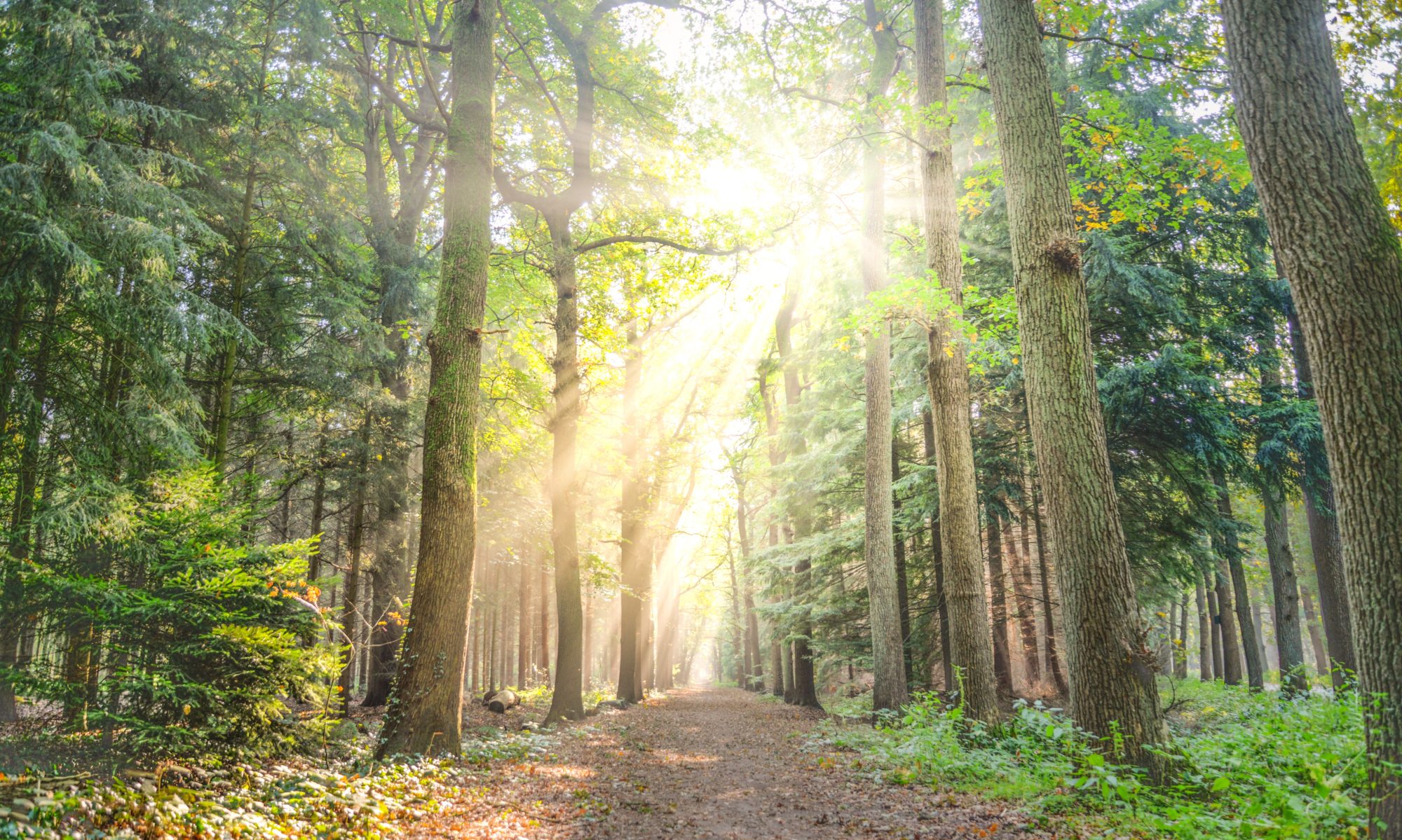
photo by Martin Sanchez on Upsplash
This blog was not written by AI.
This blog is about the pandemic, death, grief, trauma, diagnoses, and struggle.
It is June 2024 and it has been more than 4 years since my last blog entry. Frankly, it boggles my mind that it has been that long, because the time has flown by. Back then, we were a couple of months into a pandemic that was to become much worse than anyone imagined (except maybe for the scientists that were figuring out what was going on – I bet they were able to imagine). I’m a little embarrassed that through all that time, since my last blog entry in April of 2020, that I haven’t written anything. I’m not embarrassed because I have a large following of “fans” expecting me to hear from me. It’s more that this blog has always been a promise I made to my professional self. And yet despite the free time I suddenly found myself with, and the myriad thoughts I had in my head throughout the pandemic, I neglected to write. Yes, there was a total upheaval of my practice: the loss of some patients, the shift to online tele-therapy, the isolation and mask wearing, the emptiness of my physical practice location, the learning to work from home, et cetera. But I adapted pretty well to this newness, I think. I adjusted to these changes and learned to work pretty well in these novel contexts. And yet, I didn’t write.
I had a lot of thoughts as I watched how the world responded to this global pandemic. As I became hypervigilant to every cough and sneeze. As I jammed multiple swabs up my nose. As I experienced 2 bouts of COVID-19 myself, and watched the death tolls rise and heard friends and family report the loss of loved ones. I guess this is what this blog post will be about: the impact the pandemic has had, and the psychological ripple effects that I have observed in myself and in the psyche of our society. In my previous post, four years ago, as we were careening into the pandemic, I listed some of the impact that was already apparent. Fear. Sadness. Rage. Despair. Loss. But I also encouraged a look inward. Not in that toxic-positivity way of, “take this opportunity to better yourself!” More of a “this is a chance to learn the contours of your strengths, weaknesses, resources, and insecurities” kind of way.
You’ll notice that’s a recurring theme of my blog – the “let me see what this teaches me about me” theme. I am a psychologist, after all.
Let me share a little about what I learned about myself. Adjusting to the pandemic significantly exacerbated my procrastination. I mean, severely! (Case in point, I wrote this blog 2 years ago – only getting around to finishing it and publishing it now). Somehow I am even further behind on some responsibilities than I could have even imagined. Despite being generally gregarious, extroverted, and socially stimulated, I found myself preferring isolation. Even as we all gradually ventured out to restart social gatherings, and it really felt good being back out again, I found I was stuck in a pattern of isolation. I kept walking away from social encounters like “ahh, that felt amazing! I didn’t realize how much I needed that! I’ve really missed getting together with people.” And yet, I consistently defaulted to choosing isolation.
Irritation, exasperation, and even anger became companions as I watched the sociopolitical climate. The pandemic turned our world (not just our country – but things here were definitely prominent in my mind) upside down! We saw massive criticism and upheavals of our law enforcement agencies, as well as the exposure of other system racisms. I awoke to the heretofore ignored realities of systemic racism and began to explore and confront the white supremacist, eurocentric concepts that exist in the foundation of modern psychology/psychiatry. We saw the demagoguery of our political leaders reach new lows wherein they ceased being leaders and became instead instigators. We saw a celebrated surge of anti-science ideology, including an addiction of sorts to conspiracy theories. I witnessed the first time an elected official tried to dismantle the long tradition of the US voting system. I witnessed my first insurrection! I witnessed the death of the Roe legal precedent. I probably said “I can’t believe this is happening” more times in the last 4 years than any of my 46 preceding ones.
I did not learn the guitar. I did not learn to bake sourdough. I did not paint or draw more art. I found that it took all my energy/motivation to just get by. I was lucky in that I still knew joy at the hands of my partner and my kids. I know that many did not. I grieved the loss of family members to COVID, sharing in that grief with many friends and patients of mine. Fear, stress, isolation, frustration, shock, exhaustion, anxiety, and sadness were regular parts of my day-to-day.
And that leads me to the main point of this blog: How the Pandemic Affected Our World: The Psychology Edition.
There were countless stories about how the pandemic affected all the systems and domains of life. All of them! Globally! Societal structures, economy, political structures, medical practices, housing, and on and on. One effect that I read several times that was relevant to my vocation and one that became the major source of my ire was the notion that the pandemic caused a “huge surge in mental illness.”
The reason this headline, because that’s where I saw it the most, as a headline on innumerable news programs and journalism websites, drew so much anger from me is that it is total bullshit.
Total and absolute bullshit.
There was no rise in mental illness during the pandemic. I realize that this may be a controversial thing to say, but it remains true. There was NO rise in mental illness during the pandemic.
It is true that we did see in increase in sadness, anxiety, despair, stress, overwhelm, delusional thinking, as well as an increase in harmful coping skills like substance use. We saw an increase in trauma and an increase in suicide. We saw an increase in judgment, criticism, family conflict, and social strife. And yet, still I declare: we did not see an increase in “mental illness.”
I make this declaration because none of the above mentioned psychological and behavioral responses are illnesses. None of them are disorders. They are, in fact, completely normal emotional and behavioral responses to the circumstances that were at hand.
Let’s take a look at those circumstances..
To date, according to the World Health Organization, 7.1 million people have died from the COVID-19 virus worldwide. 1.2 million of those deaths happened here in the United States. Looking at just the U.S., let’s average that each person has 3.5 immediate family members (a family of two parents and 2.5 kids, as the old “American Dream” outlined). And let’s say each person has at least 4 extended family members. So for every person that died, 7.5 people are crushed with grief. 7.5 people feel a hole in their lives where that loved one used to be. Nationally, that is 9 million people directly experiencing the grief of a death in their family. All of the sadness, the hurt, the hole in the chest feeling, the empty households. Some of those 9 million people are people who will never see their parent again, or spouses who will never have their best friend again. This estimate I’m giving you doesn’t include friends, coworkers, teachers, or other key human connections. That significantly increases the number of people affected. Sadness, insecurity, fear, despair, and feeling lost are very normal ways of responding to this loss. If anyone were to say, “Don’t be sad, get over it. Get out of bed. Get back to work!” after the loss of a loved one, I’d call them calloused and inhuman.
And that’s just the emotional distress associated with death. Add to that the fact that people who were struggling, but able to manage their pain with social distractions, lost the ability to access those coping skills. Couples that were perhaps “dysfunctional” and managed their struggles with “time away” at work or in separate social gatherings, lost those escapes and were left spending more time together, often to their detriment. The incidence of intimate partner violence crimes increased during the pandemic. People who managed their stress with social events, or going to the gym, or some other gregarious activities had to isolate, distance, and disconnect. When you have built your coping and stress management around certain activities, it can be very hard to change course and adjust to new means of relief.
Now, take these personal struggles and add unemployment to the pile. Attempts to prevent the spread of this plague resulted in vast amounts of people losing their jobs – now struggling and worrying about paying their essential bills, keeping their homes or apartments, or being able to afford food. The psychological load was overwhelming.
When you place all these individualized experiences in the context of the social and political upheaval we witnessed, including violent protest, increased hate-crimes, etc., then you can add a growing but diffuse sense of insecurity and lack of safety to the stack. Political leaders and social influencers promoted suspicion, conflict, paranoia, and hate, rather than calm, mutual respect, assistance, and support. “Othering” became a social media pastime. I mean, to be frank, it has always been a pastime on social media but it was dangerously exacerbated during the pandemic.
So, when you look at the far-reaching ripple effects of the pandemic, how can anyone blame the individual for being depressed, anxious, untrusting, or emotional. Feeling depressed, insecure, anxious, angry, unsettled, and unsafe is the normal response to circumstances that are depressing, threatening, upsetting, and terrifying. The world literally got more dangerous on several levels.
It might seem like I’m arguing semantics. I’m saying there was no increase in “mental illness.” It was important to me to make this statement because the words we use to describe each other matters, and calling common human reactions “illnesses” or “diseases” disrespects our very humanity. And respecting our humanity is the only way we will be able to heal. Those of us left, punch drunk in the aftermath of this global killer, need to be tender with ourselves. Give ourselves permission to be miserable, unsure, and self-protective. Resist the messaging that says we should all be ok now. We’ve had our asses kicked, and it may take a moment to get back up again. And that’s ok.
And being kinder and more patient with each other can’t hurt either.
